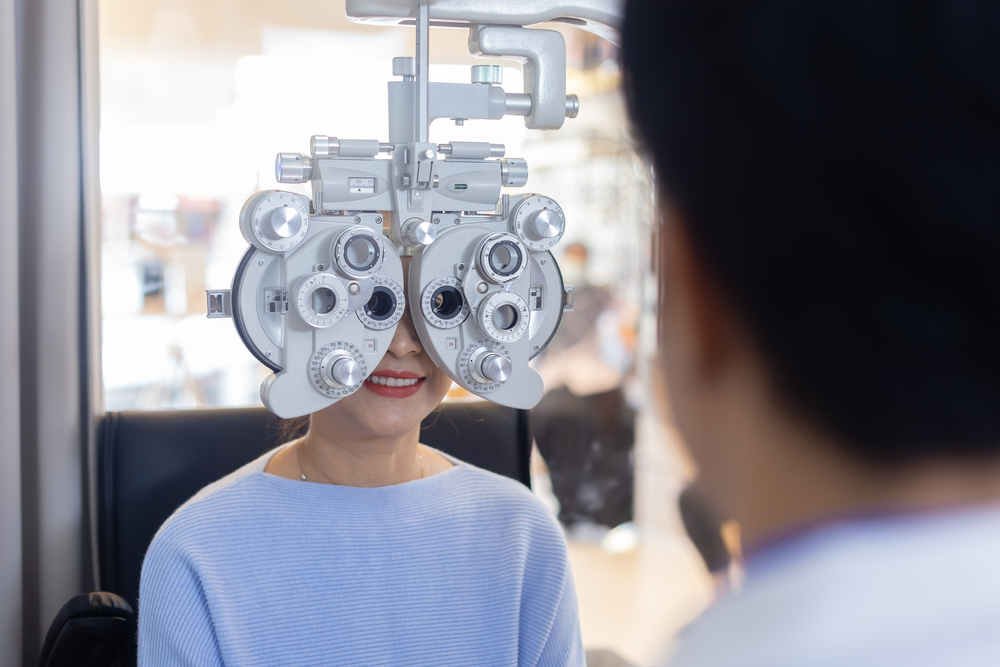
In today's fast-paced world, it's easy to overlook the importance of taking care of our eyes. However, regular eye exams are crucial for maintaining good eye health and catching any potential problems early on. From age-related factors to common eye conditions, understanding these factors will help you make informed decisions about your eye health.
Why Comprehensive Eye Exams Are Essential
Comprehensive eye exams are essential because they provide a holistic assessment of your eye health. Unlike simple vision screenings, which only measure your visual acuity, comprehensive exams delve deeper into the various aspects of your eyes. They include tests such as visual field testing, color vision testing, and evaluation of eye movements and coordination.
These additional tests help your optometrist detect any underlying issues that may not be apparent during a routine vision screening. By catching such issues early, your optometrist can recommend appropriate treatments or interventions to prevent further vision loss.
Factors That Influence the Frequency of Eye Exams
Several factors influence the frequency of eye exams that individuals should undergo to maintain optimal eye health. These factors encompass various aspects of an individual's health, age, risk factors, and specific eye health needs. Here are the key factors that can influence the frequency of eye exams:
Age
- Children and Adolescents: For children, regular eye exams are crucial to monitor vision development, detect refractive errors, and identify potential eye conditions that can affect learning and academic performance. The American Optometric Association recommends the first eye exam at 6 months of age, followed by additional exams at age 3, and at age 5. After that, children with no vision problems or risk factors should have an eye exam every two years.
- Adults (18-64 years old): Individuals within this age group without risk factors or vision problems are generally advised to have a comprehensive eye exam every 1-2 years to monitor vision changes, detect early signs of eye diseases, and ensure overall eye health.
- Older Adults (65 and older): As individuals age, the risk of developing age-related eye conditions such as cataracts, glaucoma, and age-related macular degeneration increases. Therefore, adults aged 65 and older are often recommended to have annual eye exams to closely monitor for and address age-related eye health concerns.
Risk Factors and Medical History
- Pre-existing Eye Conditions: Individuals with pre-existing eye conditions, such as diabetes, glaucoma, or a family history of eye diseases, may require more frequent eye exams to closely monitor their eye health and manage their specific conditions.
- Systemic Health Conditions: Certain systemic health conditions, including diabetes and hypertension, can impact eye health. Individuals with these conditions may need more frequent eye exams to monitor for diabetic retinopathy, hypertensive retinopathy, and other related complications.
Visual Symptoms and Changes
- Vision Changes: Individuals experiencing changes in vision, such as blurred vision, double vision, or difficulty focusing, should seek an eye exam promptly to identify the underlying causes and address any potential vision problems.
- Eye Discomfort or Pain: Persistent discomfort, pain, redness, or irritation in the eyes may indicate underlying eye conditions that warrant a comprehensive eye examination.
Occupational and Lifestyle Factors
- Occupational Risks: Certain occupations or activities that involve prolonged use of digital devices, exposure to hazardous materials, or potential eye injuries may warrant more frequent eye exams to address occupational eye health risks.
- Lifestyle Choices: Individuals who smoke, have poor nutrition, or engage in activities with potential eye health risks may benefit from more frequent eye exams to monitor and address the impact of lifestyle choices on their eye health.
Consulting with an Optometrist to Determine Exam Frequency
These are general guidelines for eye exam frequency, it is important to consult with an optometrist to determine the best schedule for you. Your optometrist will consider your age, medical history, family history, and personal risk factors to determine the appropriate frequency of exams. They may recommend more frequent exams if you have underlying health conditions or if you are at higher risk for certain eye diseases.
Your optometrist can provide personalized recommendations based on your individual circumstances and ensure that any changes in your eye health are promptly addressed. By working closely with your optometrist, you can stay proactive in managing your eye health and prevent potential complications.
Schedule Your Next Eye Exam with Westside Vision Optometry Today
The frequency of these exams depends on various factors, including age, personal and family medical history, and the presence of eye conditions. By understanding these factors and consulting with an optometrist, you can ensure that you are receiving the appropriate level of care for your eyes.
Schedule your comprehensive eye exam today and take proactive steps toward preserving your eye health, visit Westside Vision Optometry in our Los Angeles, California, office. Please call (424) 249-1957 to book an appointment today.





